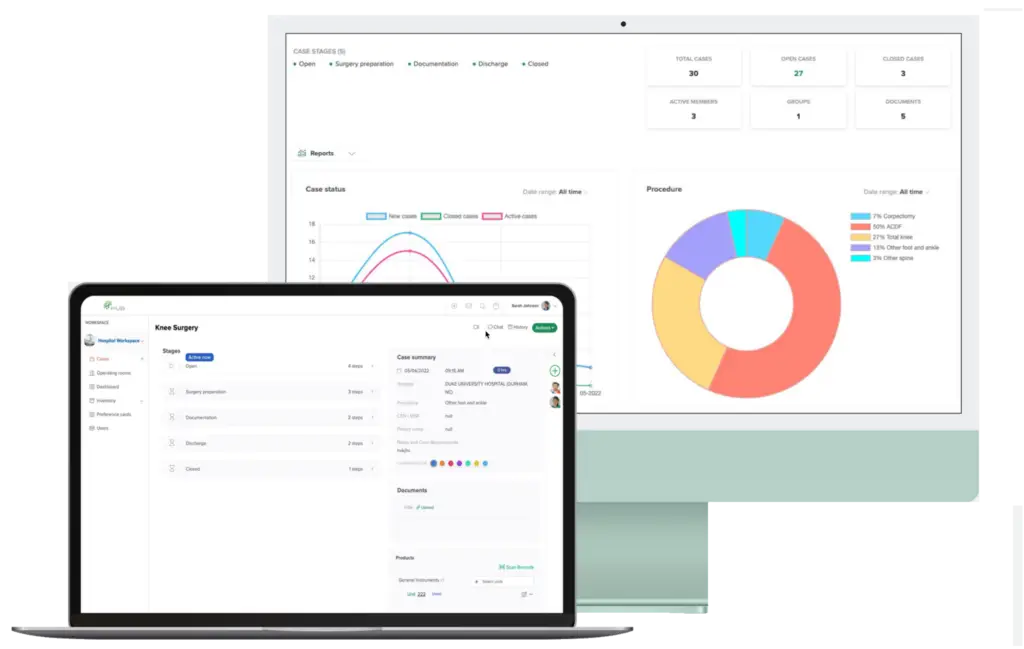Surgery centers aim to provide efficient and cost-effective surgical care for patients. However, surgery cancellations remain a significant challenge, leading to delays in treatment, increased costs, and decreased patient satisfaction. In this article, we will explore the top 10 reasons surgeries are canceled at surgery centers and how to prevent them.

1. Patient-Related Factors
Lack of Pre-Operative Preparation
One of the most common reasons for surgery cancellations is a lack of pre-operative preparation by the patient. This can include not following pre-operative instructions, such as fasting or stopping certain medications, or not completing necessary pre-operative tests.
Prevention: Surgery centers should implement a clear and thorough pre-operative preparation process, including written and verbal instructions from healthcare providers. A system to track and follow up on necessary pre-operative tests can ensure compliance.
Patient No-Shows
Patient no-shows can occur due to transportation issues, personal emergencies, or simply forgetting about the appointment.
Prevention: Implement reminder systems, such as automated phone calls or text messages, to remind patients of their upcoming surgery. Clearly communicate the cancellation policy to patients.
2. Equipment or Supply Issues
Equipment Malfunctions and Missing Supplies
Equipment or supply issues can lead to surgery cancellations, including equipment malfunctions, missing or expired supplies, or delays in equipment delivery.
Prevention: Regularly check and maintain equipment and supplies. Create a schedule for equipment maintenance and routinely check expiration dates on supplies. Have a backup plan for equipment malfunctions or delays.
3. Staffing Shortages
Surgeon Availability
Surgeon availability is critical. If the surgeon is not available on the scheduled surgery date, the surgery will have to be canceled.
Prevention: Track surgeon availability and communicate any changes to patients and staff as soon as possible. Have a backup plan, such as another surgeon on call or rescheduling the surgery.
General Staffing Shortages
Shortages in nursing staff, anesthesiologists, or other necessary healthcare providers can also lead to cancellations.
Prevention: Track staffing levels and communicate potential shortages to staff and patients. Have a pool of on-call staff or work with a staffing agency as a backup.
4. Insurance or Payment Issues
Insurance Coverage and Payment
Insurance or payment issues can lead to surgery cancellations if patients do not have necessary coverage or cannot pay for the surgery.
Prevention: Verify insurance coverage and communicate any potential payment issues to patients before the surgery date. Clearly communicate the payment policy to patients.
5. Patient Health Issues
Uncontrolled Medical Conditions
Uncontrolled medical conditions, such as high blood pressure or diabetes, can increase the risk of complications during surgery.
Prevention: Implement a thorough pre-operative screening process to identify and manage potential health issues. Reschedule surgery if necessary until the condition is under control.
Infection or Illness
Patients with infections or illnesses can also have their surgeries canceled, as surgery can put additional strain on the body.
Prevention: Screen patients for signs of infection or illness before surgery. Reschedule if the patient is not in optimal health.
6. Administrative Errors
Scheduling Mistakes and Incorrect Patient Information
Administrative errors can cause delays and frustration, leading to surgery cancellations.
Prevention: Double-check all scheduling and patient information. Have multiple staff members review the schedule and patient information before the surgery date.
7. Lack of Communication
Miscommunication Among Staff
Miscommunication about scheduling, patient information, or equipment and supply needs can lead to cancellations.
Prevention: Establish clear communication protocols and regular staff meetings. Use a system to track and address communication issues.
8. Emergencies or Natural Disasters
Unforeseen Events
Emergencies or natural disasters, such as power outages or severe weather, can disrupt surgery schedules.
Prevention: Develop a disaster plan including backup power sources, emergency supplies, and a system for communicating with staff and patients during emergencies.
9. Patient Anxiety or Fear
Anxiety and Fear
Patient anxiety or fear can lead to cancellations if patients become too anxious or have panic attacks before surgery.
Prevention: Address patient anxiety by providing information about the surgery and offering support and reassurance.
10. Lack of Follow-Up
Post-Operative Care
Lack of follow-up can lead to cancellations, such as not scheduling necessary follow-up appointments or not providing post-operative instructions.
Prevention: Schedule follow-up appointments before surgery and provide written post-operative instructions.
Conclusion
Surgery cancellations can be frustrating and costly for both patients and surgery centers. By addressing the top 10 reasons for surgery cancellations, surgery centers can improve efficiency, reduce costs, and increase patient satisfaction. Implementing clear processes and communication protocols can prevent many issues and ensure high-quality care.
Enhancing Healthcare with Surgery Scheduling Software
Surgery scheduling software is a transformative tool designed to enhance both patient outcomes and operational efficiency in healthcare settings. Here’s how this technology is making a difference:
Streamlined Processes
The software automates the scheduling of surgeries, allocation of resources, and coordination among staff. This streamlining reduces administrative burdens, allowing healthcare providers to focus more on patient care rather than manual scheduling tasks.
Reduced Errors and Wait Times
Automating scheduling and logistics minimizes human errors such as double bookings or resource misallocations. This efficiency reduces wait times, enabling timely medical interventions crucial for better health outcomes.
Optimized Resource Utilization
Optimal use of operating rooms and medical equipment is critical. Surgery scheduling software ensures efficient resource use, avoiding both underuse and overbooking, supporting high patient turnover without compromising care quality.
Improved Communication
Effective communication among surgeons, nurses, administrative staff, and other healthcare providers is facilitated by the centralized platform provided by the software. This ensures everyone is on the same page regarding a patient’s care plan, reducing potential mishaps and enhancing overall treatment efficacy.
Enhanced Patient Satisfaction and Staff Productivity
Smoothly scheduled surgeries without unnecessary delays or rescheduling increase patient satisfaction. Staff can operate in a less chaotic environment, boosting productivity and contributing to increased revenue for the facility.
Investing in modern surgery scheduling software not only supports robust healthcare operations but also significantly advances the quality of care patients receive, marking a pivotal step toward modernizing medical services and outcomes.

How HUB Healthcare Can Help
HUB Healthcare provides a comprehensive solution designed to enhance communication in healthcare, streamline care coordination, and improve overall workflow efficiency. Our platform includes features such as medical case management software, healthcare document management, and healthcare analytics to ensure that all aspects of patient care are optimized. By leveraging HUB Healthcare’s robust tools, organizations can reduce workflow bottlenecks, automate repetitive tasks, and facilitate better collaboration among healthcare providers. This not only improves work quality but also enhances patient outcomes, making HUB Healthcare an essential partner in achieving healthcare excellence. Visit our Help Center to learn more about optimizing your healthcare workflows.


